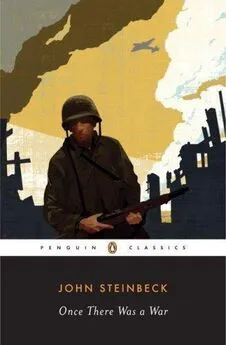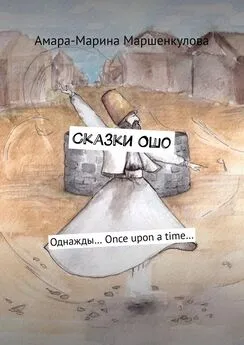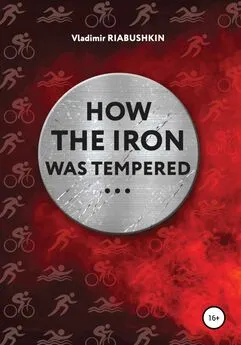John Steinbeck - Once there was a war
- Название:Once there was a war
- Автор:
- Жанр:
- Издательство:Viking Press
- Год:1958
- ISBN:нет данных
- Рейтинг:
- Избранное:Добавить в избранное
-
Отзывы:
-
Ваша оценка:
John Steinbeck - Once there was a war краткое содержание
Once there was a war - читать онлайн бесплатно полную версию (весь текст целиком)
Интервал:
Закладка:
“Let’s go eat,” the turret gunner says.
NEWS FROM HOME
BOMBER STATION IN ENGLAND, June 28, 1943 —The days are very long. A combination of summer time and daylight-saving time keeps them light until eleven thirty. After mess we take the Army bus into town. It is an ancient little city which every American knows about as soon as he can read. The buildings on the narrow streets are Tudor, Stuart, Georgian, and even some Norman. The paving stones are worn smooth and the flagstones of the sidewalks are grooved by apes of strollers. It is a town to stroll in. American soldiers, Canadian, Royal Air Force men, and many of Great Britain’s women soldiers walk through the streets. But Britain drafts its women and they are really in the Army, driver-mechanics, dispatch riders, trim and hard in their uniforms.
The crew of the Mary Ruth ends up at a little pub, overcrowded and noisy. They edge their way in to the bar, where the barmaids are drawing beer as fast as they can. In a moment this crew has found a table and they have the small glasses of pale yellow fluid in front of them. It is curious beer. Most of the alcohol has been taken out of it to make munitions. It is not cold. It is token beer—a gesture rather than a drink.
The bomber crew is solemn. Men who are alerted for operational missions are usually solemn, but tonight there is some burden on this crew. There is no way of knowing how these things start. All at once a crew will feel fated. Then little things go wrong. Then they are uneasy until they take off for their mission. When the uneasiness is running it is the waiting that hurts.
They sip the flat, tasteless beer. One of them says, “I saw a paper from home at the Red Cross in London.” It is quiet. The others look at him across their glasses. A mixed group of pilots and ATS girls at the other end of the pub have started a song. It is astonishing how many of the songs are American. “You’d Be So Nice to Come Home to,” they sing. And the beat of the song is subtly changed. It has become an English song.
The waist gunner raises his voice to be heard over the singing. “It seems to me that we are afraid to announce our losses. It seems almost as if the War Department was afraid that the country couldn’t take it. I never saw anything the country couldn’t take.”
The ball-turret gunner wipes his mouth with the back of his hand. “We don’t hear much,” he says, “it’s a funny thing, but the closer you get to action the less you read papers and war news. I remember before I joined up I used to know everything that was happening. I knew what Turkey was doing. I even had maps with pins and I drew out campaigns with colored pencils. Now I haven’t looked at a paper in two weeks.”
The first man went on, “This paper I saw had some funny stuff in it. It seemed to think that the war was nearly over.”
“I wish the Jerries thought that,” the tail gunner says. “I wish you could get Goering’s yellow noses and them damned flak gunners convinced of that.”
“Well anyway,” the waist gunner says, “I looked through that paper pretty close. It seems to me that the folks at home are fighting one war and we’re fighting another one. They’ve got theirs nearly won and we’ve just got started on ours. I wish they’d get in the same war we’re in. I wish they’d print the casualties and tell them what it’s like. I think maybe that they’d like to get in the same war we’re in if they could get it to do.”
The tail gunner comes from so close to the border of Kentucky he talks like a Kentuckian. “I read a very nice piece in a magazine about us,” he says. “This piece says we’ve got nerves of steel. We never get scared. All we want in the world is just to fly all the time and get a crack at Jerry. I never heard anything so brave as us. I read it three or four times to try and convince myself that I ain’t scared.”
“There was almost solid red flack over Bremen last Thursday,” the radio man says. “Get much more and we can walk home over solid flak. I hate that red flak. We sure took a pasting Thursday.”
“Well, we didn’t get any,” says Henry Maurice Grain, one of the gunners. “We got the nose knocked out of our ship, but that was an accident. One of the gunners in a ship high on ahead tossed out some shell casings and they came right through the nose. They’ve got her nearly fixed up now.”
“But anyway,” the first man says doggedly, “I wish they’d tell them at home that the war isn’t over and I wish they wouldn’t think we’re so brave. I don’t want to be so brave. Shall we have another beer?”
“What for?” says the tail gunner. “This stuff hasn’t got even enough character for you to dislike it, I’m going back to wipe my guns. Then I won’t have to do it in the morning.”
They stand up and file slowly out of the pub. It is still daylight. The pigeons are flying about the tower of an old Gothic church, a kind of architecture especially suited to nesting pigeons.
The hotel taken over by the Red Cross is crowded with men in from the flying fields which dot the countryside. Our bus drives up in front and we pile in. The crew looks automatically at the sky. It is clear, with little puffs of white cloud suspended in the light of a sun that has already gone down.
“Looks like it might be a clear day,” the radio man says. “That’s good for us and it’s good for them to get at us.”
The bus rattles back toward the field. The tail gunner muses. “I hope old Red Beard has got a bad cold,” he says. “I didn’t like the look in his eye last time.”
(Red Beard is an enemy fighter pilot who comes so close that you can almost see his face.)
SUPERSTITION
BOMBER STATION IN ENGLAND, June 30, 1943 —It is a bad night in the barracks, such a night as does not happen very often. It is impossible to know how it starts. Nerves are a little thin and no one is sleepy. The tail gunner of the other outfit in the room gets down from his upper bunk and begins rooting about on the floor.
“What’s the matter?” the man on the lower bunk asks.
“I lost my medallion,” the tail gunner says.
No one asks what is was, a St. Christopher or a good-luck piece. The fact of the matter is that it is his medallion and he has lost it. Everyone gets up and looks. They move the double-decker bunk out from the wall. They empty all the shoes. They look behind the steel lockers. They insist that the gunner go through all his pockets. It isn’t a good thing for a man to lose his medallion. Perhaps there has been an uneasiness before. This sets it. The uneasiness creeps all through the room. It takes the channel of being funny. They tell jokes; they rag one another. They ask shoe sizes of one another to outrage their uneasiness. “What size shoes you wear, Brown? I get them if you conk out.” The thing runs bitterly through the room.
And then the jokes stop. There are many little things you do when you go out on a mission. You leave the things that are to be sent home if you have an accident. You leave them under your pillow, your photographs and the letter you wrote, and your ring. They’re under your pillow, and you don’t make up your bunk. That must be left unmade so that you can slip right in when you get back. No one would think of making up a bunk while its owner is on a mission. You go out clean-shaven too, because you are coming back, to keep your date. You project your mind into the future and the things you are going to do then.
In the barracks they tell of presentiments they have heard about. There was the radio man who one morning folded his bedding neatly on his cot and put his pillow on top. And he folded his clothing into a neat parcel and cleared his locker. He had never done anything like that before. And sure enough, he was shot down that day.
The tail gunner still hasn’t found his medallion. He has gone through his pockets over and over again. The brutal talk goes on until one voice says, “For God’s sake shut up. It’s after midnight. We’ve got to get some sleep.”
The lights are turned out. It is pitch black in the room, for the blackout curtains are drawn tight. A man speaks in the darkness. “I wish I was in that ship by now.” He knows that he will be all right when the mission starts. It’s this time of waiting that hurts, and tonight it has been particularly bad.
It is quiet in the room, and then there is a step, and then a great clatter. A new arrival trying to get to his bunk in the dark has stumbled over the gun rack. The room breaks into loud curses. Everyone curses the new arrival. They tell him where he came from and where they hope he will go. It is a fine, noisy outburst, and the tension goes out of the room. The evil thing has gone.
You are conscious, lying in your bunk, of a droning sound that goes on and on. It is the Royal Air Force going out for the night bombing again. There must be hundreds of them—a big raid. The sound has been going on all evening and it goes on for another hour. Hundreds of Lancasters, with hundreds of tons of bombs. And, when they come back, you will go out.
You cannot call the things that happen to bombing crews superstition. Tension and altitude do strange things to a man. At 30,000 feet, the body is living in a condition it was not born to withstand. A man is breathing oxygen from a tube and his eyes and ears are working in the reduced pressure. It is little wonder, then, that he sometimes sees things that are not there and does not see things that are there. Gunners have fired on their own ships and others have poured great bursts into empty air, thinking they saw a swastika. The senses are not trustworthy. And the sky is treacherous with flak. The flak bursts about you and sometimes the fragments come tearing through your ship. The fighters stab past you, flaring with their guns. And, if you happen to see little visions now and then, why, that’s bound to happen. And if on your intensified awareness, small incidents are built up with meanings, why, such things always happen under tension. Ghosts have always ridden through skies and if your body and nerves are strained with altitude, too, such things are bound to happen.
The barrack room is very silent. From a corner comes a light snore. Someone is talking in his sleep. First a sentence mumbled and then, “Helen, let’s go in the Ferris wheel now.”
There is secret sound from the far wall, and then a tiny clink of metal. The tail gunner is still feeling through his pockets for his medallion.
PREPARATION FOR A RAID
BOMBER STATION IN ENGLAND, July 1, 1943 —In the barracks, a brilliant white light flashes on, jerking you out of sleep. A sharp voice says, “All right, get out of it! Briefing at three o’clock, stand-by at four-twenty. Better get out of it now.”
The crew struggles sleepily out of their bunks and into clothes. It is 2:30 a.m. There hasn’t been much sleep for anyone.
Outside the daylight is beginning to come. The crew gropes its way through sleepiness and the semidarkness to the guarded door, and each goes in as he is recognized by the guard.
Inside there are rows of benches in front of a large white screen, which fills one wall. Some of the crews are already seated. The lights go out and from a projector an aerial photograph is projected on the screen. It is remarkably clear. It shows streets and factories and a winding river, and docks and submarine pens. An Intelligence officer stands beside the screen and he holds a long pointer in his hand. He begins without preliminary. “Here is where you are going,” he says, and he names a German city.
Читать дальшеИнтервал:
Закладка:










